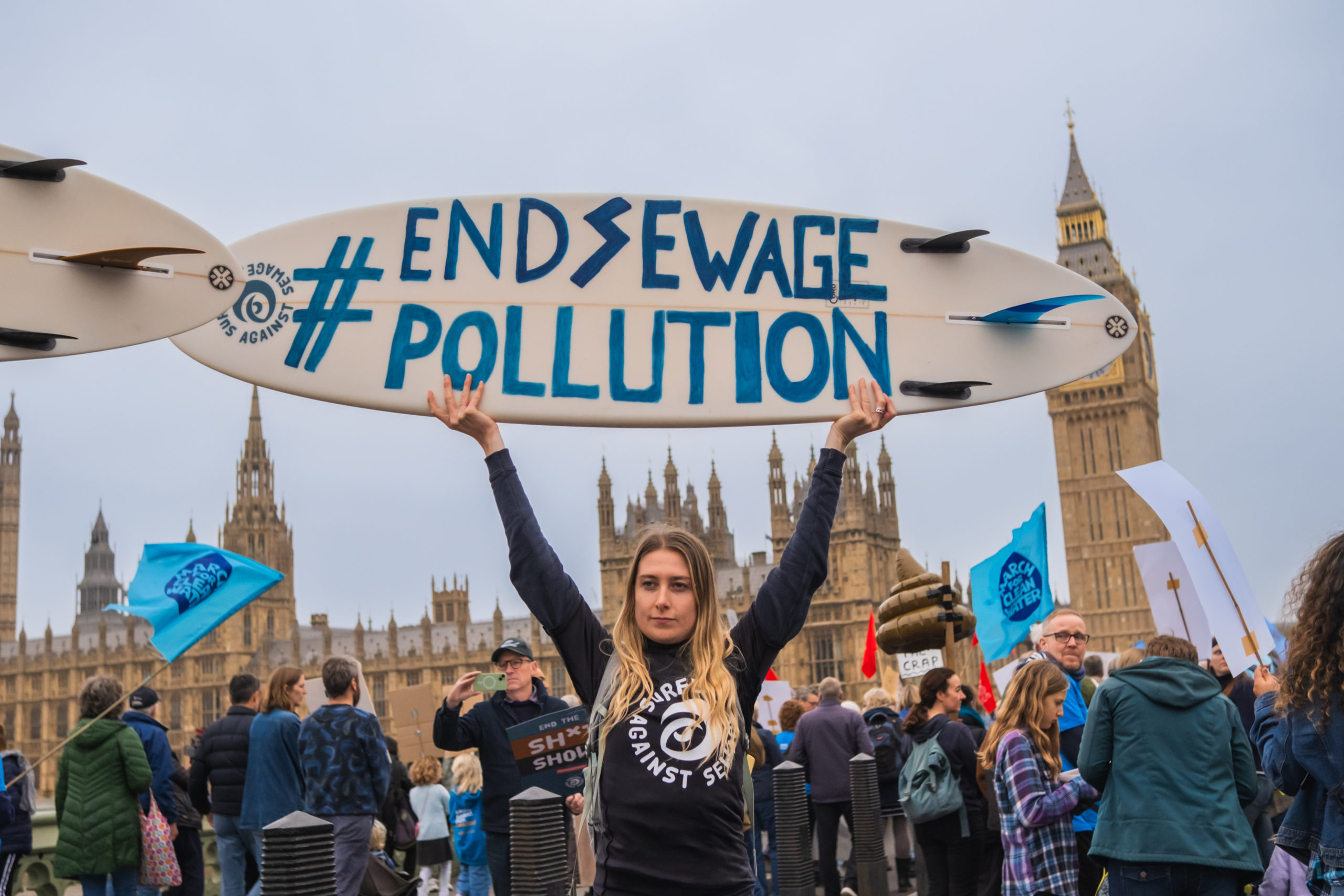A new report from Surfers Against Sewage (SAS) has revealed that more than a quarter of adults in England have considered not paying their water bill as a result of recent sewage scandals and reports of financial mismanagement within the UK water industry.
In the Water Quality Report, SAS highlights the scale of the UK’s sewage problem and focuses in on what it calls the ‘poor performance and financial mismanagement‘ in the privatised sector, with the campaign group calling for urgent and radical reform.
Through a representative sample of 2,000 adults, SAS reveals that 27% of people in England, where the water industry is privatised, have considered not paying their bill due to the actions of their water supplier, with just one third (33%) believing their water supplier will take the necessary action to end sewage pollution.
SAS’s report questions where the billions funded through bill payments is going, highlighting that despite new regulations and laws intended to reduce profit from pollution shareholders were paid £1.2 billion in 2023-24 whilst record hours of raw sewage discharged into England’s waters.
The campaign group is calling for the Government and the Independent Water Commission to deliver radical transformation of the privatised water industry in England and Wales.
Giles Bristow, CEO at Surfers Against Sewage said:
“The water industry fails, fails and fails again and yet is permitted to come up smelling of roses, while our coastlines, rivers and lakes suffer the stench of sewage pollution. The numbers are staggering: record hours of sewage discharges, huge bill increases, thousands of people becoming ill and yet still the industry has the gall to still pay out billions of billpayer money to shareholders.
“Things could not be clearer: this broken system needs urgent and radical reform.
“We can change things, if we change the way our system is run. Across the globe, the norm is to manage water at a local level, rather than the 100% private ownership model in place in England that has proved catastrophic for the environment and public health.
“The era of broken pipes and broken promises must end and be replaced by a fresh vision for water that ends pollution for profit and leads to a fair and transparent system – one that prioritises public health and value for customer money and delivers healthy coastlines, rivers and lakes.”
In 2024 alone, Surfers Against Sewage received 1,853 Sickness Reports through its Safer Seas & Rivers Service app – an average of five people getting sick per day after using the water. The data only includes cases reported to SAS, meaning the number of people becoming unwell from poor water quality is likely to be far higher.
These reported instances of sickness led to nine years’ worth of sick days, with an estimated productivity hit to the economy of £493,200.
331 people had to see a doctor, with 79% of those reporting that their doctor had attributed their illness to sewage pollution. Water users reported hundreds of cases of gastroenteritis and chest infections, as well as serious bacterial infections and even hospitalisations.
This year’s Surfers Against Sewage Water Quality Report is published as the Government and the Independent Water Commission continue their review of the future of the privatised water industry in England and Wales. The Commission is currently conducting a public call for evidence which closes on Wednesday 23 April. Surfers Against Sewage is calling for transformational reform of the sector and is urging the Commission to publish recommendations that can deliver an end to sewage pollution.
Specifically, the charity is demanding that:
- Water companies should prioritise people and planet before profit or shareholder returns.
- Decisions about how water is managed should have the input of local stakeholders: water users, customers, local authorities, engineers and environmental groups
- Regulators must enforce the law and hold stakeholders to account. Financial reward must not be permitted if laws are broken, and environmental performance is poor.
- The new system must be regulated to ensure finances are used efficiently and debt is managed sustainably, with investment prioritised to tackle sewage pollution.
- Water companies must be fully transparent around their finances, ensuring that no-one can profit from pollution.




